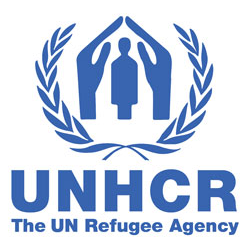Main Debate
- Does the scope of the rights under the International Covenant on Civil and Political Rights meet the specific protection needs of refugees?
- How useful are the reporting and individual communications functions of the Human Rights Committee for the protection of refugees and asylum-seekers?
Main Points
- Reporting, Standard setting v. quasi adjudicatory role of the Human Rights Committee
- The extraterritorial application of Art. 7
- Non-refoulement under Art.7 v. non-refoulement under Art. 33 of the Geneva Convention
- The emerging standards of the Human Rights Committee on detention of asylum seekers under Art. 9
Treaties
Soft Law
- Human Rights Committee, ‘General Comment No. 20: Art. 7. (Prohibition of torture or cruel, inhuman or degrading treatment or punishment)’, 3 October 1992.
- Human Rights Committee, ‘General Comment No. 21: Art. 10. (Humane treatment of persons deprived of their liberty)’, 10 April 1992.
- Human Rights Committee,‘Vienna Declaration’, UN World Conference on Human Rights, June 1993, para. 23.
Cases
- Yin Fong v. Australia, HRC, Views of 23 October 2009 (no. 1442/2005) (detention for more than 4 years, with no consideration of less invasive means and no showing of individual circumstances necessitating continued detention, constitutes a violation of article 9).
- C. v. Australia, HRC, Views of 28 October 2002, no. 900/1999, (lengthy detention causing mental illness of applicant and deportation to Iran constitutes a violation of Arts 7 and 9).
- Suresh v. Canada (Minister of Citizenship & Immigration), [2002] 1 S.C.R. 3. (Canadian judicial decision ruling that deportation to torture is prohibited by CAT and ICCPR and Canada lacked sufficient procedural safeguards for deportations when there is a risk of torture).
- A v. Australia, HRC, Views of 30 April 1997, no. 560/1993. (absence of individualconsideration of reasons for detention of asylum seekers constitutes a violation of Art. 9).
- Torres v. Finland, HRC, Views of 2 April 1990, no. 291/1988 (failure of state to provide alien in detention for more than five days a right of access to the court proceedings for judicial review of the lawfulness of his detention constitutes a violation of Art. 9).
Readings
Core
- J.C. Hathaway, 'The Rights of Refugees under International Law', (Cambridge: Cambridge University Press, 2005), pp. 119-123.
- A. Edwards, ‘Peter Pan’s fairies and genie bottles: UNHCR, UN human rights treaty bodies and “complementary supervision”, in J.C. Simeon (ed), The UNHCR and the Supervision of International Refugee Law (Cambridge: Cambridge University Press, 2013), pp. 159-181.
- S. Joseph, J. Schultz, and M. Castan, The International Covenant on Civil and Political Rights: Cases, Materials, and Commentary (Oxford: Oxford University Press, 2004), pp. 230–248.
- M. Nowak, U.N. Covenant on Civil and Political Rights. CCPR Commentary, 2. Edition (Kehl-Strasbourg-Arlington: N.P. Engel, 2005), pp. 185–188.
- S. Persaud, ‘Protecting Refugees and Asylum Seekers under the International Covenant for Civil and Political Rights’, New Issues in Refugee Research Series, Research Paper No. 132, UNHCR (November 2006), pp. 1–33.
- R. Plender and N. Mole, ‘Beyond the Geneva Convention: Constructing a De Facto Right of Asylum from International Human Rights Instruments’, in F. Nicholson and P. Twomey (eds), Refugee Rights and Realities. Evolving International Concepts and Regimes (Cambridge: Cambridge University Press, 1999), pp. 81–105.
Extended
- J. Hathaway, 'The Rights of Refugees under International Law' (Cambridge: Cambridge University, 2005), pp. 124–147.
- C.W. Wouters, 'International Legal Standards for the Protection from Refoulement', (Antwerp: Intersentia, 2009), pp. 359–423.
Editor’s Note
There are a number of General Comments relevant to refugees and asylum-seekers; likewise the HRC, in its Concluding Observations on State Party reports increasingly frequently addresses the circumstances of asylum seekers and refugees in their assessment of State Party compliance with specific articles under the ICCPR. This offers another channel for asylum rights advocacy. The views of the HRC on individual communications are dominated by cases of rejected asylum-seekers and fear of return to torture and cases on arbitrary detention.
 II.3.3.2 The UN International Covenant on Civil and Political Rights
II.3.3.2 The UN International Covenant on Civil and Political Rights
 Treaties
Treaties# Name Size 1  International Covenant on Civil and Political Rights, 16 December 1966, 999 U.N.T.S. 171, Arts 7, 9, 12, 13.
International Covenant on Civil and Political Rights, 16 December 1966, 999 U.N.T.S. 171, Arts 7, 9, 12, 13.Empty 
 Cases
Cases



